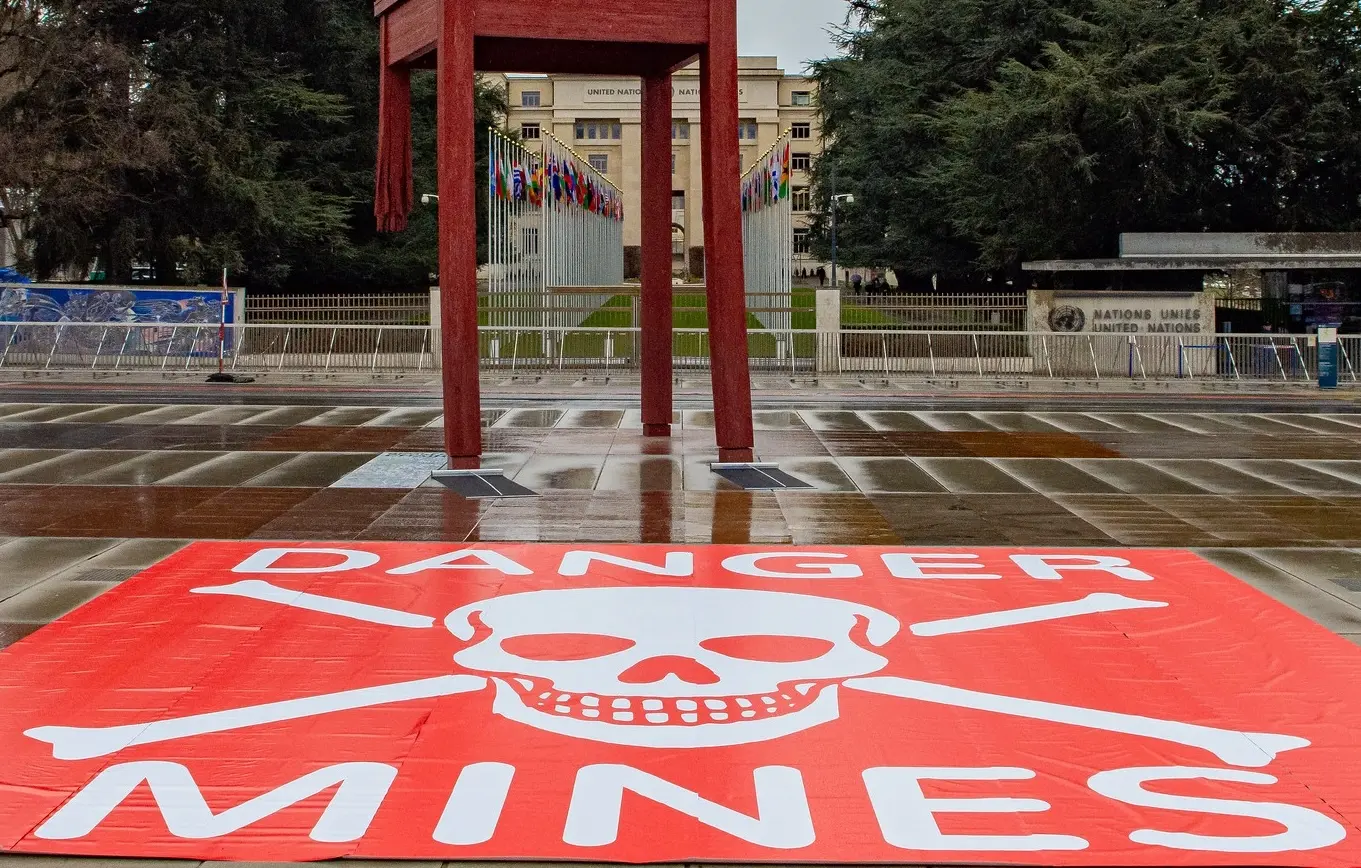Today marks the 25th anniversary of the Mine Ban Treaty’s entry into force, a monumental milestone in global efforts to end the use of antipersonnel landmines, inherently indiscriminate weapons that have a devastating impact on communities worldwide.
Signed in December 1997, the treaty came into force on 1 March 1999, establishing a global prohibition on any use, production, stockpiling and transfer of antipersonnel landmines, as well as obligations to clear contaminated land and assist landmine victims. It was a groundbreaking achievement – the first time in history a conventional weapon was totally banned and victims’ rights to assistance recognized and included in a disarmament treaty.
Reflecting on the past 25 years, Ms. Tamar Gabelnick, Director of the International Campaign to Ban Landmines – Cluster Munition Coalition (ICBL-CMC) said: “Over the past 25 years, the ICBL has driven a transformative change in humanitarian disarmament. Our collective efforts have led to tangible and lasting changes for communities affected by mines – from the clearance of huge tracts of land to the recognition of rights of survivors. With tens of millions of stockpiled mines destroyed and near universal respect for the ban on use, the future risk to communities has also been curtailed.”
Today the convention enjoys widespread support with 164 countries formally onboard and with a strong stigma against the weapon established globally. Over the past 25 years the treaty has had remarkable impact, including:
- A substantial reduction in landmine casualties – down from some 25,000 casualties per year in 1999 to less than 5,000 casualties recorded last year by the Landmine Monitor; this means thousands of lives and limbs spared around the world;
- Large tracts of contaminated land cleared and returned to productive use, with over 30 countries becoming mine-free;
- The almost universal end to use of a previously widely employed weapon
- Over 55 million mines held in stockpiles destroyed, with production and transfers almost non-existent;
- The recognition of rights and needs of landmine victims, with efforts to provide assistance including medical care, rehabilitation, and psychosocial support and social and economic inclusion.
The ICBL is a global network of non-governmental organizations advocating for a world without antipersonnel landmines and where the suffering caused by these weapons has ended, and where the rights of victims are upheld and realized.The campaign was awarded the Nobel Peace Prize in 1997 for its efforts to bring about the Mine Ban Treaty.


Leave a Reply